In my experience as “The Transition Expert,” and CEO of Life Cycle Transitions, LLC, I’ve witnessed firsthand the impact of the pandemic and how people have responded to it. When the pandemic peaked and so many were ill, my company was labeled as an “essential” company–meaning that LifeCycle Transitions delivers a service that was to be provided despite a mandatory lockdown. Our people were considered “essential workers.” We continued to transition clients with our full range of services that includes hoarding cleanup, in-home care, relocation to an assisted-living or active-active community, move management, updating a home with safety features, or even rescuing a distressed property (and its owner) from possible condemnation proceedings.
Yes, it was a very scary time for me and my staff. Everyone was on heightened alert as we carefully–and bravely–served people who needed our transition services. I could not have been prouder of my team’s heroism during these challenging times. At a time when some unfortunate companies were forced to shut down due to staff shortages, all of my staff remained committed to eagerly and courageously serving our clients. This was true even though I couldn’t afford to
pay higher wages during this challenging time; I knew that paying my staff more would force me to pass the extra expense to my clients – many of them elderly and facing desperate times. I was adamant that we could not make life more difficult for these folks.
During those strenuous months, we witnessed fear, impulse, and mania in their truest forms as disabled, elderly, or lonely people in various living circumstances grasped for security, stability, and normalcy in their own unique way. Some sought comfort in worldly objects and possessions, even when those things didn’t appear to be sensible, given a pandemic and mandatory lockdowns. For example, we saw people purchase formal wear, evening gowns, suits, and other evening attire as if they assumed the pandemic would end in weeks and not years.
I remember hearing my elders speak about bomb shelters used during previous wars, and their stashes of non-perishable food items. As the pandemic wore on, I witnessed people reacting selfishly and irrationally due to anxiety brought on, not by the threat of war’s devastation, but by worries over food shortages. Some people purchased enormous quantities of supplies and food, then filled their garages, sheds and basements with things they never used. Unfortunately, the hoarded food was often poorly stored. It frequently rotted. Rather than being a wise investment for a rainy day, the stored food became an embarrassing, smelly mess that attracted rodents and was difficult to clean up.
Enforced isolation also negatively affected many people during the pandemic. Some families who hadn’t spoken in years opted for wellness checks as a means to verify that estranged family members were managing during the pandemic. More than one family discovered that their relative was living in deplorable conditions. In extreme cases, family members faced condemnation proceedings from their town, or eviction by their landlord.
Isolation also contributed to undiagnosed mental issues. Some people looked to recreational drugs or alcohol for relief from loneliness, only to find themselves trapped in a spiral of dependency.
Recent studies indicate that enforced isolation also led to soaring numbers of opioid overdoses and suicides. We saw some of these situations firsthand, and they were so sad! Even after more than a decade of transitioning hundreds of families, I find these situations incredibly difficult.
We also watched thriving marriages crumble and delicate relationships diminish since there was no place for couples to go when they needed space to be alone or time to think. Without any activities outside their home, people felt trapped. Sheltering in place led to increased resentment and–in some cases–anguish. Domestic abuse cases spiked alarmingly. Some of our transition work involved the emotional issues associated with sheltering at home or being separated from one’s peers, extended family, and friends.
The Aftermath
One pleasant surprise from the pandemic was the opportunity it gave people to work remotely. We helped clients whose remote work gave them the freedom to relocate since they were no longer tied to a location close to their workplace. Others worked remotely for a time and then elected to retire early and relocate to their dream place. We rejoiced at the opportunity to accommodate these transition wishes.
One thing we all learned was that rapid change is stressful. Even folks who were relatively unscathed by COVID itself felt the pressure, frustration, and sadness of the pandemic. No one was immune.
We all changed, too. In our relationships, finances, or general maturity, we all came to understand one fact that’s easy to overlook–-nothing ever remains the same. Change is the one constant in life. For a transition expert like me, that meant my plate was very full!
Although I had never doubted that our work at LifeCycle Transitions was valuable, the pandemic taught me that there is a real need for a Transition Expert. So, if you’re dealing with upheaval in your personal life, we would love to use our expertise to help you. We will come to your home and discuss with you options that will help you transition from where you are now to where you would like to be. Please contact us at (877) 273-7810 or at lifecycletransitions.com to schedule a free transition assessment.
